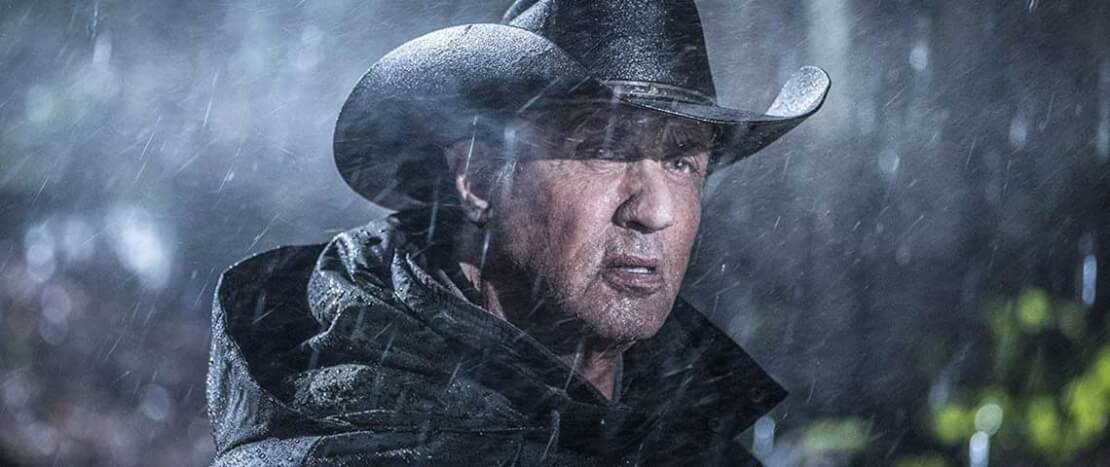Rambo: Last Blood
After the events of ‘Rambo IV‘, Sylvester Stallone’s titular hero quietly lives on his dead father’s ranch in Arizona. Sharing his life with Maria (Adriana Barraza), they bring up her granddaughter Gabrielle (Yvette Monreal). When Gabrielle learns that her biological father is living in Mexico, she feels compelled to see him. However, when she doesn’t return home, Rambo knows he must go to Mexico and bring her back, no matter what the cost…
… doesn’t just stumble through your disbelief, it actively falls through the previous ceiling set by ‘Rambo IV’.
Opening strongly with a mountain flash-flood sequence which sees Stallone’s hero as a reserved, taciturn mountain tracker, ‘Rambo: Last Blood’ edges towards the more realistic sensibility of ‘Wind River‘. However, this understated reticence is short-lived as returning home, the serious business of the main plot gets under way.
By introducing Gabrielle as some kind of proto-daughter, ‘Rambo: Last Blood’ opens the door to Rambo’s missed opportunity at family life. However, when Sylvester Stallone randomly suggests to Gabrielle that Mexico is no country for old men (let alone young adolescents), you realise this potential was only ever a door left ajar. Instead, the dangerous descent into prejudice that follows, is far more of a threat to the franchise than any of its characters.
The reason for this is because, with the exception of servile Maria (decently played by Adriana Barraza), winsome Gabrielle and a similarly disposable reporter (played by Paz Vega), Mexicans get a bad rap. Reduced to being thugs, rapists or murderers, there are no balancing redemptions in a script that just wants to see Rambo kill Mexicans. So, where the commendable ‘First Blood’ had something to say about PTSD and a culture that doesn’t know to handle failure, ‘Rambo: Last Blood’ drowns into a racist rut all of its own making.
With economies made to plot, dialogue and filming, ‘Rambo: Last Blood’ doesn’t just stumble through your disbelief, it actively falls through the previous ceiling set by ‘Rambo IV’. Painful to watch, poorly acted and splintered by dialogue that moves as laboriously as the scenery, this is a sequel with little or no resemblance to the original character or his motives.
In ultimately what amounts to a poorly conceived rehash of Jason Statham’s ‘Homefront’, ‘Rambo: Last Blood’ becomes a sequel that should have never got to market. Whereas chapter one had drama, two had atonement, three had hokum and four had fun, ‘Rambo: Last Blood’ has absolutely none.
So, despite Rambo being continually that “it’s not your fault”, the blame for this sequel can fall at one person’s feet. With violence only motivated by unbalanced prejudice, Stallone’s latest is a sad, toxically transparent exercise in self-justification.
No, John, the war isn’t over. It’s actually just begun.









